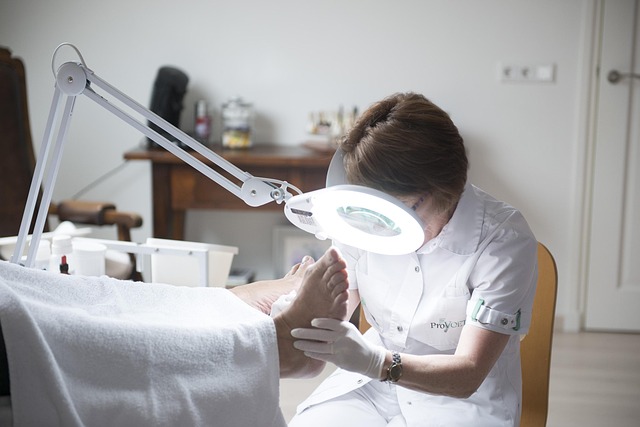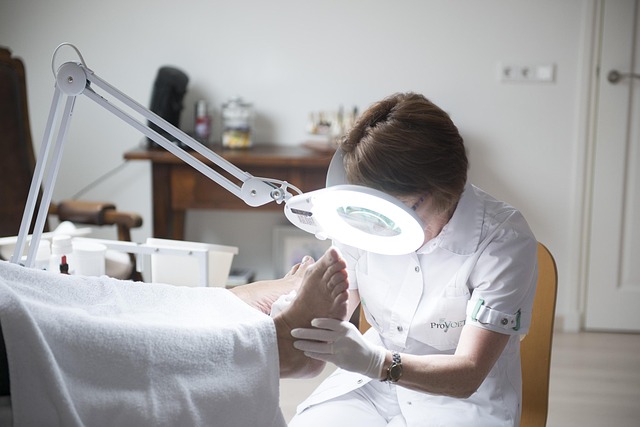Trauma-informed care transforms addiction recovery by addressing traumatic experiences, offering more than symptom management through online self-help resources. These platforms provide tools like crisis intervention, mindfulness plans, and virtual communities, empowering individuals to heal from the comfort of home. Integrating digital approaches with traditional care ensures comprehensive support, fostering emotional safety and validation crucial for successful recovery. To support a loved one's recovery, utilize available online resources, establish consistent routines and secure spaces, promote open communication, and adapt group counseling dynamics to cater to unique needs, focusing on emotional well-being and resilience.
Trauma-informed care is transforming the way we approach emotional healing, especially in addiction recovery. This innovative approach places emotional safety and validation at the forefront, recognizing that trauma often underlies substance use disorders. In this article, we explore the foundational principles of trauma-informed care and its profound impact on recovery. We also delve into the growing significance of online self-help resources for addiction recovery, offering practical steps to incorporate trauma-sensitive practices in the comfort of your home.
- Understanding Trauma-Informed Care: A Foundation for Emotional Safety
- The Role of Online Self-Help Resources in Addiction Recovery
- Practical Steps to Incorporate Trauma-Informed Practices at Home
Understanding Trauma-Informed Care: A Foundation for Emotional Safety

Trauma-informed care is a revolutionary approach that recognizes the profound impact of traumatic experiences on an individual’s mental and emotional well-being, especially in the context of addiction recovery. This framework shifts the focus from simply treating symptoms to creating a safe and supportive environment where individuals feel validated and empowered. At its core, it prioritizes understanding and addressing the root causes of trauma, ensuring that every person seeking help receives compassionate care tailored to their unique experiences.
In the realm of online self-help resources for addiction recovery, trauma-informed care serves as a foundational concept. Many platforms now offer not just tools for managing symptoms but also strategies to navigate and heal from past traumas. From evidence-based medications for withdrawal management to crisis intervention training that equips individuals to recognize emergency situations, these services collectively contribute to a holistic approach. Additionally, nutrition planning services for optimal health recovery play a significant role in this paradigm shift, recognizing that proper nourishment is essential for both physical and emotional healing.
The Role of Online Self-Help Resources in Addiction Recovery

In today’s digital era, online self-help resources for addiction recovery have emerged as powerful tools to supplement traditional treatment methods. These platforms offer a wide range of personalized mindfulness plans, crisis intervention training, and support groups accessible from the comfort of one’s home. Many individuals struggling with addiction find solace in these virtual spaces, providing them with immediate access to resources that were once limited to geographical locations.
Addiction treatment centers specializing in specific substances have also adapted by integrating online components into their programs. These digital tools not only aid in maintaining continuity between in-person sessions but also enable ongoing monitoring and support. By combining the benefits of traditional care with the accessibility of online self-help resources, individuals on the path to recovery can receive comprehensive and tailored assistance, fostering a sense of emotional safety and validation crucial for their success.
Practical Steps to Incorporate Trauma-Informed Practices at Home

Creating a trauma-informed home environment is a powerful step towards supporting someone on their journey to recovery from addiction. Start by educating yourself; there are numerous online self-help resources for addiction recovery that offer valuable insights into trauma-informed care. Many of these resources provide practical strategies to create safety and foster empathy in daily interactions.
Incorporate consistent routines, ensure a safe physical space, and encourage open communication. Group counseling sessions fostering accountability, empathy, and community among peers in recovery can be adapted at home, creating a supportive network. Remember, each individual’s path to recovery is unique; tailoring these practices to their needs is essential, with the ultimate goal of promoting emotional well-being and resilience.
Trauma-informed care, with its emphasis on emotional safety and validation, offers a transformative approach to addiction recovery. By understanding the foundational principles outlined in this article—from recognizing the impact of trauma to leveraging online self-help resources for addiction recovery—individuals can navigate their path to healing more effectively. Incorporating trauma-informed practices at home, alongside accessing available online self-help tools, enables a holistic and supportive environment conducive to long-term recovery. Remember that prioritizing emotional safety is key to fostering resilience and embracing a brighter future.






